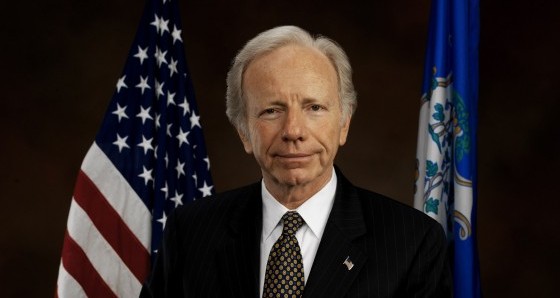Speaking to Fox News yesterday, Senator Joe Lieberman, who is among WikiLeaks’ fiercest critics, makes very clear his desire to see the organisation’s founder Julian Assange extradited to the US and indicted by any means possible. Or not possible just now, but possible very soon, perhaps.
More interesting than Lieberman’s quite naked desire to prosecute Assange or WikiLeaks, or both, is his speculation that the New York Times may have also committed a crime and may also be subject to some form of prosecution.
That isn’t a great leap though, if WikiLeaks has committed a crime in publishing the cables then surely the New York Times has also committed a crime. It seems likely that attorney general Eric Holder, try as he might, will have enough trouble bringing a case against WikiLeaks. The state has been bitten once already in this kind of fight with the Times and I suspect it will be quite shy about trying again.
More interesting still is Lieberman’s comment toward the end of the interview:
I think the New York Times has committed at least an act of bad citizenship.
Holder can’t indict the Times for bad citizenship – yet – but the charge is an interesting one. It rests, at least in part, on the assumption that the interests and motives of the ‘good citizen’ align with those of the government. The American author Don DeLillo succinctly exposed the error in this assumption in 1988, in response to a very similar criticism by newspaper columnist George Will.
That year Will published a scathing review of DeLillo’s novel Libra in the Washington Post. He wasn’t a huge fan of the book. He called it:
… an act of literary vandalism and bad citizenship.
DeLillo’s novel, which tells of the events leading up to the assassination of John F. Kennedy, mixes fact and fiction in the mold of Public Burning or Executioner’s Song. It challenges the official version of events presented by the Warren Commission report. In doing so it wounded George Will and, in Will’s mind, America too. The New York Times’ publication and coverage of the embassy cables has wounded Joe Lieberman and in Lieberman’s mind, America too. Lieberman makes his feelings plain in the Fox News interview: rather than discuss the possible indictment of Julian Assange in the (relatively) factual terms of breaking the law or not breaking the law, Lieberman whimpers about the “negative consequences” for America, about the country being “hurt”.
It sure looks to me on the facts that WikiLeaks and Julian Assange have violated America’s espionage act, with great negative consequences for us.
He ought to be indicted and then we can ask the authorities to in England to extradite him to the United States. If we don’t do that someone else will come along and do exactly what WikiLeaks has done and that will hurt America even more.
But did DeLillo’s novel hurt America? Will the embassy cables? Are they acts of ‘bad citizenship’? More importantly, is an act of ‘bad citizenship’ a bad thing? Should the newspaper feel chastened?
This was DeLillo’s response to Will:
I don’t take it seriously, but being called a bad citizen is a compliment to a novelist, at least to my mind. That’s exactly what we ought to do. We ought to be bad citizens. We ought to, in the sense that we are writing against what power represents, and often what the government represents … In that sense, if we’re bad citizens, we’re doing our job.
Journalists should, of course be responsible, professional, and transparent where possible, but if the Times did not act as a ‘bad citizen’ in Will’s and Lieberman’s terms, would its journalists be doing their jobs?
Whether or not the newspaper has committed a crime is one thing but this stuff about ‘bad citizenship’, this stuff about America the Brave being wounded by one of its own, is as ludicrous now as it was when George Will said it. The New York Times should pledge allegiance to the truth, not the flag.
Senator Joe Lieberman, a good citizen?
